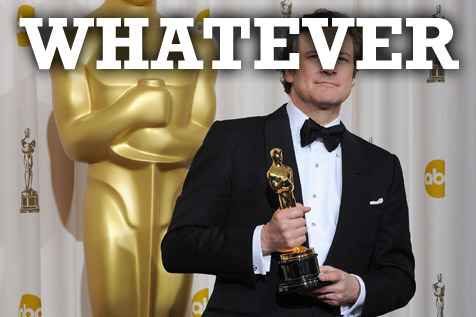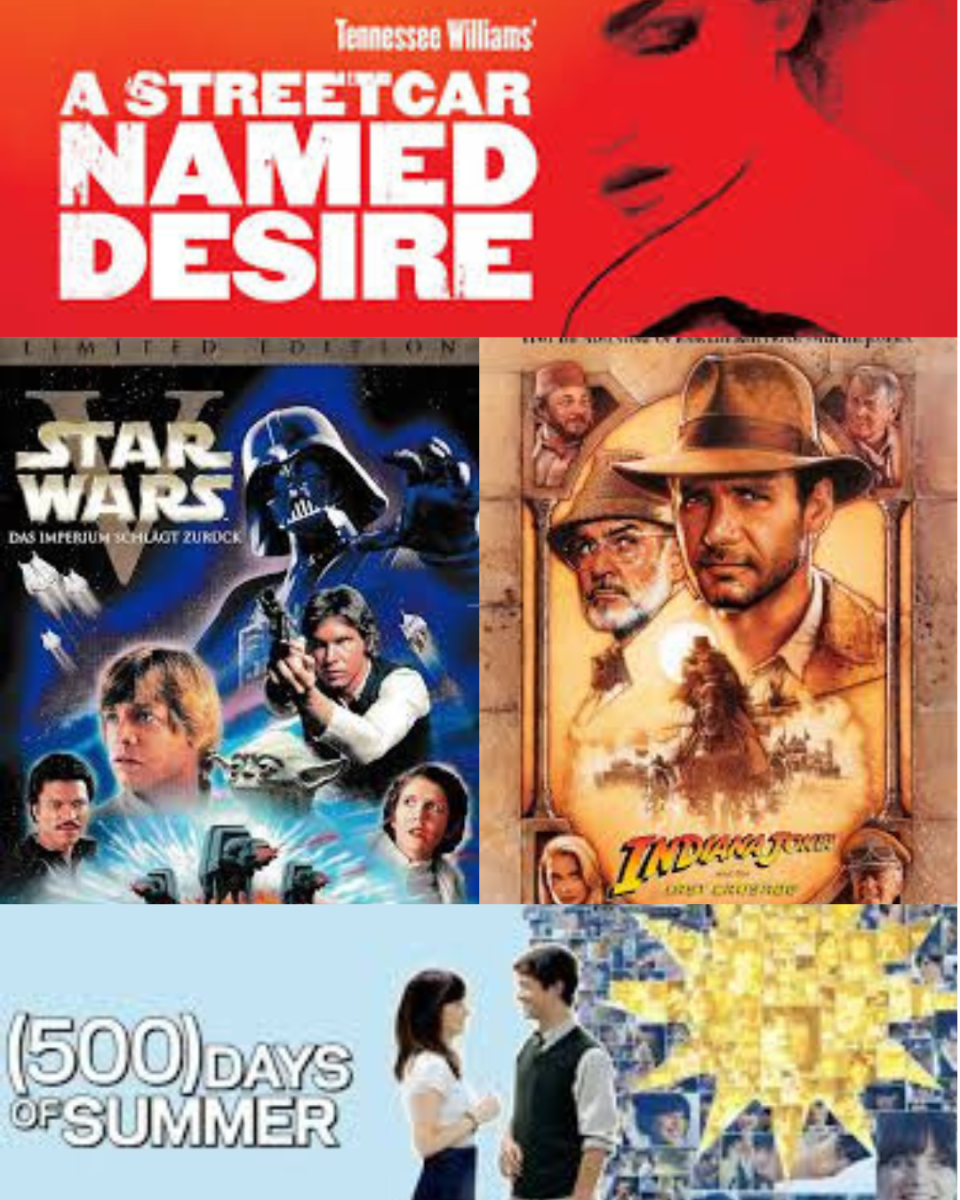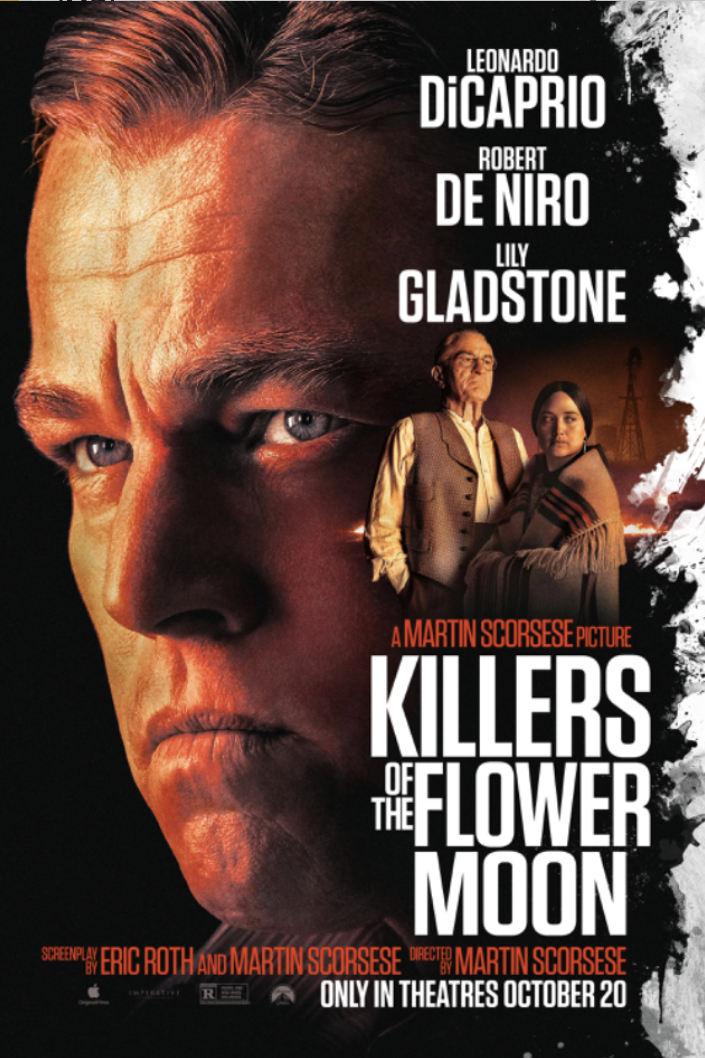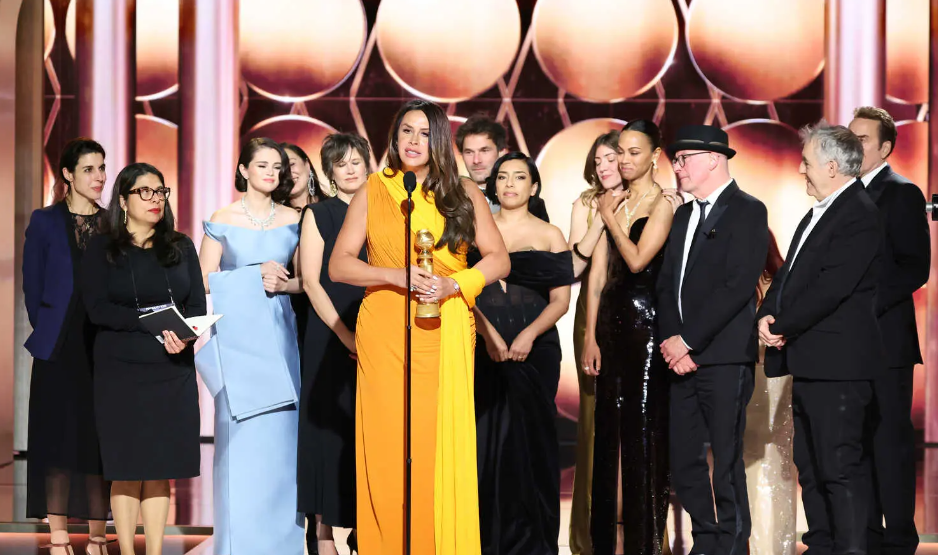Though as of the publication of this article, the nominees for the 84th Annual Academy Awards will have been announced, as of my writing, they have not yet been announced. However, I, Luke Witherell, an amateur high school critic of little prestige and even less filmmaking knowledge, can accurately say that the Academy will nominate, for Best Picture, boring and hackneyed films, over genuinely interesting and original films that viewers, like me, find entertaining. Now, this long but somehow-grammatically-correct sentence should raise a number of questions, and, likewise, a number of skeptical eyebrows. I will, however, defend my point of view.
First, let me clarify my definition of ‘boring and hackneyed.’ Any list of past Oscar nominees should suffice. For the most recent example, I must reach back to the 2010 nominations (2011 was an excellent year in my humble opinion– but more on that later). At the 2010 Awards, James Cameron’s lumbering, $2.7 billion-grossing sci-fi-beast, “Avatar,” was nominated. The movie was a 3D pioneer and a special-effects marvel. It also had two-dimensional characters and a script that played out like a bizarre parody of Disney’s “Pocahontas”. Thus, it is a perfect example of ‘boring and hackneyed.’ James Cameron’s other colossally successful tech marvel, “Titanic,” the 1998 Best Picture winner, was a similar hit over the head with a blunt instrument called cliché: the story of forbidden love played out almost like “Romeo and Juliet”, but instead of iambic pentameter, Cameron’s setting for the melodrama was a big, dumb boat. The American public should have been insulted at the over-the-top take on the centuries-old tale; instead, all of America, including the Academy, lapped it up. I guess everyone, except for me, is a huge fan of boats… boats and Leo DiCaprio.
I should really stop picking on poor James Cameron, though. He can take whatever I toss his way, seeing as it’s likely that he constantly wears an Oscar-gold-plated undershirt to protect himself from negative feedback; still, I should be nicer to him. It’s not his fault his movies are boring. His films are just the latest among a long line of films that have been rewarded for big-budget stupidity: “Out of Africa” and “Gandhi” both won Oscars in the 80s for being as subtle as silverback gorillas; “My Fair Lady” and “Oliver!” won in the 60s for being annoyingly giddy. And, in 1941, the hopelessly pandering “How Green Was My Valley” beat out the extraordinary “Citizen Kane,” because “Valley” was better received at the box-office. In short, the Academy can be, and often is, won over by the same pomp and circumstance that makes the American public want to see truly bad movies instead of more interesting ones.
So, the second point I must clarify is my definition of an entertaining movie. An entertaining movie is entertaining because of the things one barely notices: tight cinematography, witty screenwriting, adept directing, nuanced acting, and so on. The list of contemporary directors and writers who bring these qualities to their films is endless: with the rise of indie filmmaking and the ever-expanding influence of small production studios like The Weinstein Company, and subsidiaries like Fox Searchlight, there is ample room for excellent filmmakers. Most of these filmmakers, however, have been either mostly or entirely ignored by the Academy. En-vogue hipster favorites Noah Baumbach and Wes Anderson, for example, have been relegated to minor nominations like Best Screenplay, while famed existentialist filmmaker Jim Jarmusch has yet to receive a nomination for any of his critically acclaimed movies. Innovators Christopher Nolan, Danny Boyle, and Darren Aronofsky, were all given 2011 Best Picture nods, (for “Inception”, “127 Hours”, and “Black Swan,” respectively), but all three, as well as David Fincher’s exceptional “Social Network,” lost to the oligarchical, melodramatic period piece that was “The King’s Speech”. I, personally, would speculate that the Academy finds innovation threatening, perhaps fearing its insurgence in much the same way that the totalitarian Empire from “Star Wars” feared the Rebels. Coincidentally, “Star Wars” was nominated for Best Picture; thus, not all of the nominees are trite. Unfortunately, innovation is the exception, not the rule.
But I digress. I have yet to address the most important issue of all: what do these historical tragedies mean for the upcoming Best Picture nominees? Well, any reader whose attention is still somewhat captured will be able to guess my view of the matter. I will say that exceptional movies will be disregarded, in order to leave a place among the nomination pool for middling treacle. Yes, I said it, middling treacle. The gauntlet has been thrown! All 17th century insults aside, I’m fully confident that the following pandering films will be nominated: “The Help,” “War Horse,” “The Descendants,” and “Extremely Loud and Incredibly Close.”
While “The Help,” “War Horse,” and “The Descendants” are quality films, they epitomize cliché. “The Help,” for instance, is a linear film extolling the bravery of both black and white members of a Southern town. It is well-made, and the issues it presents are real, but the issue, and the movie, have been presented before. “The Help” is a more lighthearted version of “To Kill A Mockingbird,” “The Color Purple,” and “Crash,” to name a few. Emma Stone is a prettier Atticus Finch; Viola Davis, a deeper version of her character from “Crash.” Everything about the movie is good, but it frustrates me that it will earn precedence over better movies simply because it is about the Civil Rights movement. The same goes for “War Horse” and “The Descendants.” “War Horse” is classic Spielberg: if “E.T.” and “Saving Private Ryan” had a baby, this would be it. The movie is good, but not great, and it will only receive the nomination over stronger films because of Spielberg’s prominence and the similarities “War Horse” bears to his other, better films. And then there is “The Descendants,” which has an airtight script and phenomenal performances, but which also centers around the provincial, mundane, first-world problems of an affluent family. Because it is so mundane, I can’t fully except it as deserving of a nomination; and, because it is mundane, the Academy will nominate it in a heartbeat. Let me say that I am not disparaging “The Descendants,” nor am I disparaging the other two films, as I thoroughly enjoyed them. To include them among the year’s best films, however, would be overreaching and unfair.
The last of the Four Horsemen of the 2012 Pander-Pocalypse, “Extremely Loud and Incredibly Close,” is in a category all its own. It is, simply put, a terrible movie. The story meanders; the child protagonist is annoying; the directing, editing, and cinematography are all shoddy at best. What will get it a nomination is the film’s subject matter, the tragedy of 9/11, and the Academy’s fear of sending a bad message about the subject matter by disregarding the film. I, however, have no such fear. The fact that the movie addresses a devastating event does not change the fact that it is a poorly made movie; in fact, it is almost insulting that such a serious subject was treated callously enough, by the director and writers, to create such a film. The Academy should be able to differentiate between genuine homages to 9/11 and genuine crap. They should be able to, but, given their history, they won’t be able to tell the difference between the two.
I’m sorry– I got pretty negative there. I’d like to counteract that by ending with an optimistic tidbit of information: fortunately, some entertaining and innovative movies came out this year! Unfortunately, most won’t be nominated. “Drive,” a dark, subtle Cannes favorite starring Ryan Gosling as a stuntman/heist driver, will be ignored due to its ability to fall under the action moniker and thus be written off as shallow. Conversely, another film festival favorite, “Take Shelter”– which features a powerful, intense Michael Shannon as an Ohio construction worker seeing visions of the apocalypse– will be ignored because of its lack of action (most of the movie simply consists of Shannon looking at things). “50/50” and “Hesher,” two excellent black comedies starring Joseph Gordon-Leavitt, will both be ignored because of their irreverence toward the established norm– the former because it deals with cancer through humor, and the latter because its protagonist is an anarchistic squatter who uses graffiti and arson to help a boy overcome tragedy. Lastly, and most tragically, “The Muppets” and “Harry Potter and The Deathly Hallows: Part 2” will both be snubbed because, despite their obvious popularity and immense critical acclaim, they aren’t “important” enough– they don’t directly address Civil Rights or World War I and instead focus (deliberately and meaningfully) on puppets and magic. If I am correct in assuming that every one of these movies will be ignored, I will have all of the proof I need to support my initial point that the Academy would rather nominate treacle (treacle!!) than anything out of the ordinary.
Lastly, and most fortunately, some excellent movies won’t miss the Best Picture nomination: Martin Scorsese’s poetic, artistic children’s film “Hugo;” Woody Allen’s quirky, dreamy, dry comedy “Midnight in Paris;” Michael Hazanavicius’ tender, nostalgic, black-and-white “The Artist.” They all fit inside the Academy’s box of acceptable nominees, with prominent filmmakers, solid box-office standings, well-defined messages, and a dichotomy of convention and invention. See, every once in a while, the Academy get’s it right: “The Hurt Locker” beat “Avatar,” after all. Sometimes, a movie that’s conventional and melodramatic is also clever, interesting, and well-made. It’s just a shame that that conventional takes precedence over interesting. That’s what this article is really about– a little bit of convention is fine when all is said and done, but it grinds my gears that the Academy makes convention a priority. It as simple as that; I’m not really sure why I took so long to get around to that point.
I’ll find out whether the Academy of Motion Picture Arts and Sciences concedes my point as soon as they announce the nominees on January 24th. Maybe a few members will get wind of a young whippersnapper making a case for innovation, and they’ll pick something that’s not ‘boring and hackneyed’, for either the Best Picture nominees or, at the very least, the winner. Watch the Oscars live at 7 PM Eastern/4 PM Pacific on February 26th to see the true extent of the hackney. I know I will; and, despite my cynicism, I’ll love every minute of it.










M • Mar 2, 2012 at 4:51 am
I generally don’t bother commenting on random articles I stumble upon through a search engine but this is an impressive piece; well-written and convincingly argued. Do you have a blog… (hopefully about film)
Maxine Goetschius • Feb 6, 2012 at 12:40 pm
This article is so well-written and the arguments are so provocative that it makes me want to take a second look at the chosen movies and the ones not chosen. Boy, you are right on about many of the movies, i.e. “The King’s Speech”, “Out of Africa”, etc. Also agree with your take about “Extremely Loud and Incredibly Close”.
Do you figure the storyline is more important than the entertaining aspect of whether a movie deserves an Oscar nomination? There are times when the acting is so spectacular that the storyline becomes secondary making the movie exceptional enough to get a nod for an Oscar. In these cases though should not the actors get the vote instead of the movie getting best picture? As for the big melodramatic sensational pictures such as “Avatar” perhaps special effects help push that into a winning category?
There is one example of a movie that I believe hit your criteria on all counts–in 1973 “The Sting” won the nod as the storyline definitely was not mundane, it was extremely entertaining, had superb acting and a fantastic song!
I am not passing judgment on this year’s nominations yet as I have not seen enough of the chosen ones to make a decision. But I will keep in mind your points as I watch the Oscars live the end of this month! Maybe this year will be the year when the Academy will step out of the box and be unconventional instead of mundane in their final choice for the Oscar such as “The Artist” (it has a wonderful little dog starring in it!).
M.
Cody Jackson • Feb 4, 2012 at 10:37 pm
Terrific article, kudos cousin! It seems all of your predictions came true. While I personally enjoyed a few of the films you used as negative examples, you hit the nail on the head about the academy. Curious; which pile would you plop Moneyball into?
Barbara Fultz • Feb 4, 2012 at 11:09 am
Followed you all the way to “The Descendants” and its airtight script and phenomenal performances — but think turning the mundane into art is the real triumph of the artistic impulse and many steps ahead of exploiting the unique.
Will check out your non-nominees and report back. Treacle helps you know Vermont Maple Syrup is the real thing.
Luke Witherell • Feb 5, 2012 at 5:30 pm
Thank you for reading; I found your comments very insightful! I have to say, I agree with what both of you are saying. Cody, I have to admit: I have yet to see either “Moneyballl” or “The Tree of Life” (no, I’m not deliberately avoiding Brad Pitt) so I can’t pass judgment. As for “Descendants”, I was a bit harsh on it. I just like being inflammatory… I didn’t really hate it; I just didn’t love it.